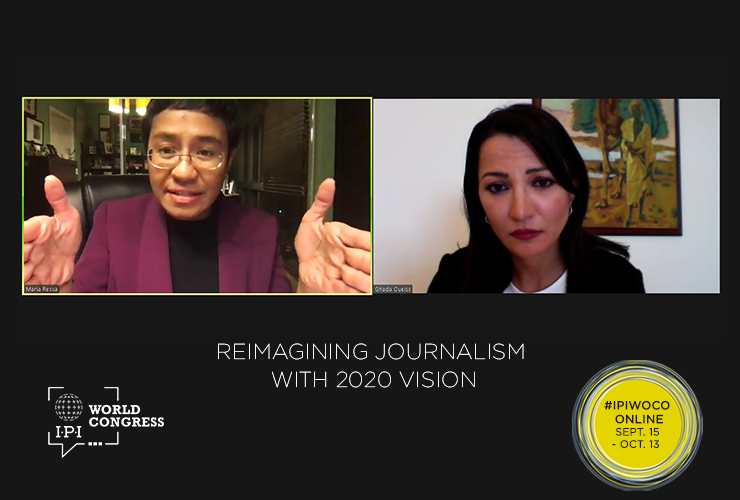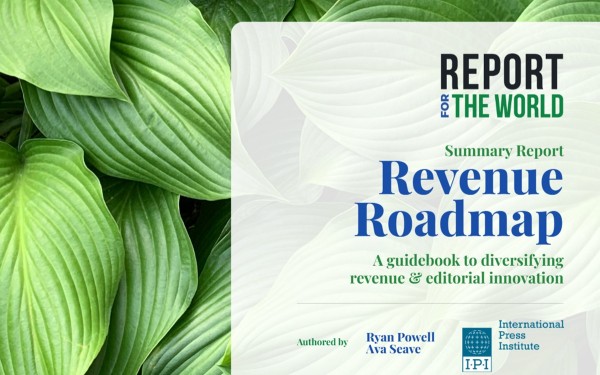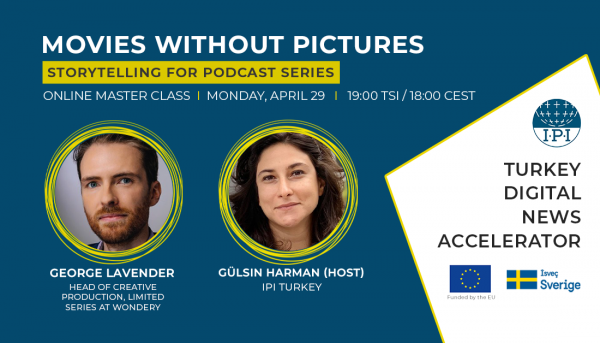Over the last few years, autocratic leaders around the world have begun perfecting techniques of weaponizing social media to discredit critical journalists online, according to Rappler CEO and Executive Editor Maria Ressa, who was speaking at the International Press Institute’s (IPI) virtual World Congress 2020 today.
“Authoritarian governments are consolidating power by weaponizing social media and the law against journalists”, Ressa, who is also a member of the IPI Executive Bord member, said, adding: “These tactics on Facebook are part of dictator’s playbooks around the world. But it’s not right that female journalists have to go through this just to do our jobs.”
Ressa was speaking at an event on the second day of IPI’s virtual World Congress, entitled Let’s Put the Trolls Back Under the Bridge, alongside Ghada Oueiss, principal anchor and news director at Al Jazeera Arabic TV Channel in Qatar, who was herself subjected to a “systemic” smear campaign in June 2020.
During the wide-ranging talk, the two journalists discussed their own personal experiences of pushing back against coordinated and gender-based disinformation campaigns and the role that Facebook and Twitter must play in tackling misogyny on their platforms.
Over the last four years, Ressa said she has been a central target in an ongoing campaign against her outlet Rappler by an army of paid trolls, bot armies and fake news websites run by supporters of Rodrigo Duterte, the autocratic president of the Philippines.
“These kinds of smear campaigns aim to accomplish three things,” she said. “First, they want to scare you and tear down your credibility,” she explained. “Secondly, they want to make you a cautionary tale for others. And finally, they want to use this disinformation and hate to influence and certain segment of the population politically.”
The governmant started attacking @rapplerdotcom in 2016 by spreading lies and the platforms amplify the lies that are being shared. The platforms create divisions in our societies, @mariaressa says in conversation with @ghadaoueiss at #IPIWoCo pic.twitter.com/y0N7Ikpph5
— IPI – The Global Network for Press Freedom (@globalfreemedia) September 17, 2020
During the interview, Ressa shared experiences with Oueiss, who in June 2020 was subjected to an online harassment campaign by Saudi Arabian social media accounts. The smears began when Twitter users began spreading private pictures of Oueiss in a swimsuit which had been stolen from her phone when she was hacked.
“I had suffered from cyber bullying before starting in 2011, but this time it was different”, Oueiss explained. “After the photos were published, I began receiving thousands of misogynistic comments, rape and death threats, suggestions she could commit suicide, and I was accused of being a prostitute, a terrorist, being called a member of ISIS, people talking about kidnapping me. It was disgusting and scary.”
She said that she had tried to report the messages and block trolls on Facebook and Twitter. But in just 24 hours, there were 30,000 tweets and retweets about her, she said. “They created a trending hashtag in the Gulf with 40,000 tweets. They made videos and even caricatures. It was overwhelming.”
Oueiss said that after the barrage of threats, she’d been advised by people close to her not to “provoke” the trolls. “This rang a bell in my head”, she told Ressa. “I thought to myself, ‘should I stop? But I realised this is what they wanted. They want to make me feel guilty and scare me. My choice was not to be silenced. I was not going to surrender.”
She added that in choosing to speak out, she took courage from other journalists who had gone public with their stories of online harassment. “I felt that if Maria Ressa can do it, then I can do it,” she said.
“Social media giants must act”
Turning to the role of social media companies in providing a platform for attacks, Oueiss said that while Facebook had taken down some images after she and her employer Al Jazeera reported them, fresh ones had quickly resurfaced on different accounts. Some of those that remained online had more than a million views but had still not been blocked, she added.
Ressa herself agreed that companies like Facebook and Twitter had the central role to play in tackling the hate, disinformation and threats shared on their platforms, and that more had to be done to find policy solutions to tackling all forms of “fake news” online.
This is a time when journalists have to come together, because we don’t collaborate enough, although we share the same problems. Finding a solution to the problems the platforms have brought about needs to be a joint effort. @mariaressa in conversation w. @ghadaoueiss at #IPIWoCo pic.twitter.com/sp9JyT4BqH
— IPI – The Global Network for Press Freedom (@globalfreemedia) September 17, 2020
Discussing the effect of online harassment on the colleagues in her newsroom, Ressa said Rappler had begun offering counselling to staff who received online threats. “The issue though is when does online violence turn into real life violence,” she added. “The way we dealt with this environment is that we look at worst case scenarios and then we plan how to deal with it.”
On a positive note, she said that whereas in the past online harassment would only be reported in one country, now global news and social media platforms cut across languages and countries, allowing journalists to share their stories internationally and offer support and solidarity.
“Finding the solution to this is critical,” she concluded. “Journalists are going to have to step up. Because we’ve never lived in a time when the risks are so high, but the mission is so critical for protecting democracy.” She added: “We need to push them [social media companies] to take down hate speech, gender-based disinformation and political disinformation. What we do now matters.”




